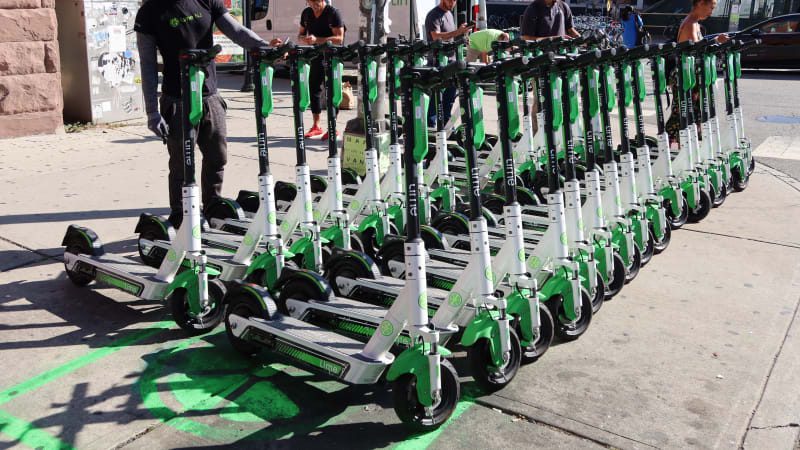Parisians vote to ban electric scooter sharing in the French capital

Parisians voted to end e-scooter-sharing services operated by companies like Lime in the French capital. The ban is scheduled to come into effect in September 2023, but critics claim that the decision puts jobs at risks and reflects the opinion of a small minority of Paris residents.
In an unusual move, the socialist Paris mayor Anne Hidalgo let residents decide the fate of e-scooters in the City of Light. She organized a referendum on April 2, 2023, and French media outlets report that nearly 90% of voters were in favor of the ban. That’s an impressive statistic, but some quickly point out that only about 100,000 people voted; French newspaper Le Figaro notes that figure represents less than 8% of registered voters. The list of alleged problems also includes an early registration cut-off, a small number of voting stations, and no electronic voting, according to The Financial Times. Hidalgo said that “more than 100,000 voters is very positive and encouraging.”
Lime, TIER, and Dott are the three main e-scooter operators in Paris, and they collectively oversee a fleet of approximately 15,000 two-wheelers. While e-scooters can make getting around a big, crowded city relatively simple and cheap, they’ve drawn the ire of Parisians who have to walk around or over them on their way to and from work. Their complaints reached the French government, who in March 2023 announced a last-minute round of regulations written in a bid to reduce clutter and accidents. The minimum age to ride an e-scooter in France increased from 12 to 14, turn signals and brake lights became mandatory, and the fine for breaking a traffic law increased from 35 to 135 euros (approximately $38 and $147, respectively). These measures weren’t enough to give e-scooters a new lease on life in Paris.
“My 84-year-old mom is scared of getting hit by an e-scooter and no longer leaves her apartment,” a voter told Le Figaro. Others complained about seeing piles of e-scooters on every street corner, and some pointed out that e-scooters sometimes end up dumped in the Seine river after a long night. However, some locals highlighted the merits of these so-called last-mile vehicles. “Rented e-scooters are particularly useful if you’re a woman. They allow us to get home late at night without taking the subway … and they’re cheaper than a taxi,” a voter said.
The main e-scooter operators in Paris plan to abide by the law and shutter their operations in September. They warned that the ban will affect about 400,000 users each month and that the sector employs approximately 800 people. “Moving away from shared e-scooters also means that Paris is isolating itself from the rest of the world with major capitals like Washington, Madrid, Rome, London, Berlin, or Vienna that are all implementing policies supporting e-scooters as ways to reduce unnecessary car usage,” TIER opined in a statement.
Paris isn’t the only city whose attitude towards e-scooters has drastically changed. New York City is worried about batteries catching on fire and trying to find a solution to the problem. Rome passed a round of regulations aimed at reducing both accidents and clutter in June 2022, and Lyft stopped renting e-scooters and e-bikes in Los Angeles in November 2022 due to a lack of long-term commitment from the city.
Related video:



